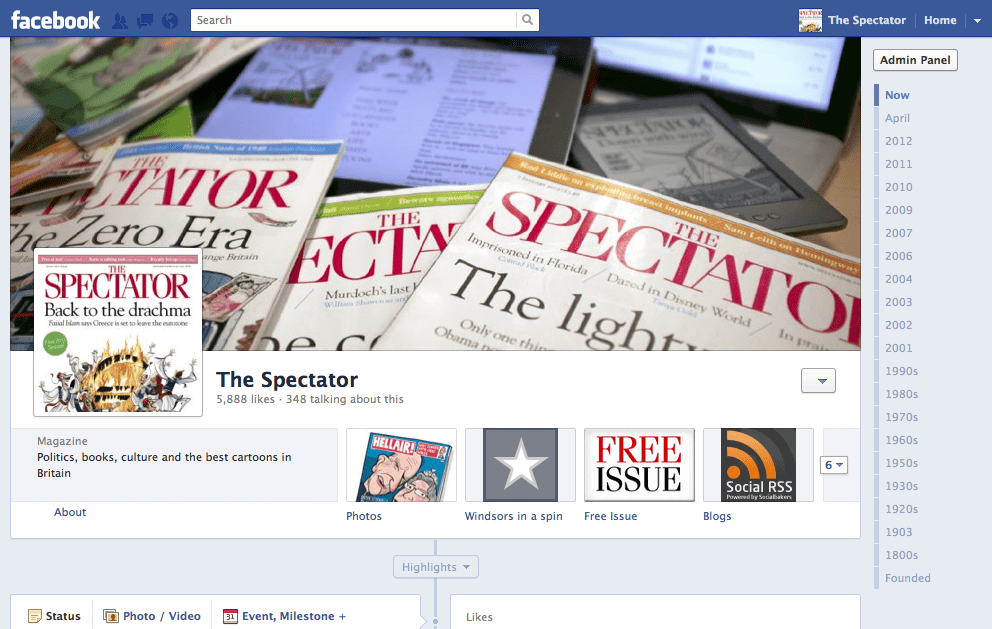Even as our attention is gripped by a crumbling eurozone, another huge economic entity is emerging in the marketplace — Facebook, which has just upsized its number of IPO shares by a quarter before its $100 billion flotation tomorrow. Providing the crisis in Europe does not blow out into a huge political standoff (and just stays the gigantic economic mess it currently is), which entity would future historians regard as the defining business model of our age?
Both the eurozone and Facebook, in a way, try to deal with the problems of geography — how to connect people from different places and cultures. But they do it in radically different ways, and I think it’s clear that — whatever our feelings about Facebook itself — it’s the social network that sums up our zeitgeist.
The eurozone is a throwback, created with an eye on history’s terrible wars; it is defensive, formed to avoid political conflict and as an economic bulwark against the US and rising Asian nations; it’s never fully embraced the global economy, with some European politicians even at this late hour thinking of enlarging the socialist apparatus when the EU has already fallen behind in so many areas of international competition.
Facebook, on the other hand, is forward-looking, refusing to define geography merely in terms of physical boundaries — on Facebook, you’re as ‘close’ to someone on the other side of the planet as you are to someone who lives next door. It’s ferociously capitalist, from its winner-takes-all beginnings to its impending public share sale, which looks like it will be the third biggest in US history. The platform is open — configured so that as many people can clamber on to it as possible — rather than closed, like Fortress Europe. The eurozone is defensive, while Facebook is offensive (and for those who dislike social media, terribly so).
Facebook and other social media networks such as Twitter or Russia’s Vkontakte are earth-flatteners — the second-largest Facebook market in the world is Indonesia, rather than a G8 country. According to Boston Consulting, social networks reach about 80 per cent of users in developed and developing economies alike. By 2016, China will have nearly 800 million internet users, the same number as France, Germany, India, Japan, UK and US combined. Many of these web users will hop onto copycat social networks like Weibo or RenRen. The residents of many villages around the world are now more familiar with internet content than with indoor plumbing or air conditioning.
Let’s not forget the super-rich, the people who make piles of money from this frontier-less über-capitalism. Indeed, when future academics study the most powerful entities of our time, they will probably single out those conglomerations that are not defined by anything so archaic as national boundaries. The banking industry, for instance, worth almost $100 trillion when you add up the assets of the world’s 1,000 largest banks, has long been like a free-floating country of its own. An investment banker from the City probably feels more kinship to his or her counterpart in Hong Kong than to, say, a teacher in London. The financial sector has its special, opaque language and culture and the people in it recognise each other immediately.
Being immensely rich is its own passport. Facebook’s Brazilian co-founder Eduardo Saverin, for instance, has given up his US citizenship in order to minimise his tax payments post-IPO. Currently resident in Singapore, Saverin can well afford to forsake the passport of the world’s most famous democracy; with the money he’s set to make, he can live anywhere.
It’s a new and somewhat baleful world, but it’s our world all the same. And, compared with the old-world set-up that is the eurozone, perhaps things could be worse.






Comments